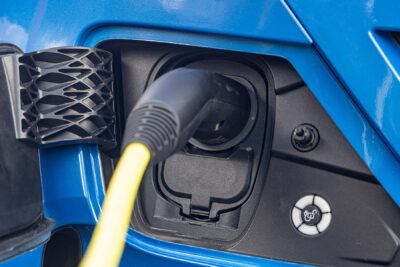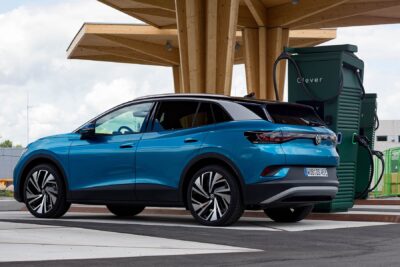Will the EU set CO2 reduction targets at 60% by 2030?
The EU Commission is planning stricter targets for CO2 emissions from new cars as it considers raising the current CO2 reduction target for 2030 from 37.5 to 60 per cent, while the target for 2035 is to go up to 100%. This would effectively end the sales of ICE vehicles within 14 years.
Brussels-based Politico revealed the new targets with reference to three EU officials. The plans would amount to a ban on cars with internal combustion engines, including hybrids, from 2035 and pose a serious acceleration of the transport turnaround.
The new rules are to be established as part of an overhaul of EU standards for reducing car emissions, which are themselves part of the EU’s Green Deal. Under the Green Deal, transport emissions are to fall by 90 per cent by 2050.
The final text is due for publication on 14 July. If the Commission’s proposals make it into the final text it would still need to be rubber-stamped by EU countries and the European Parliament. In both cases, there is likely to be a strong headwind from nations with traditionally strong auto industries such as Germany, and in Parliament from the influence of the auto lobby.
Clearly, such a tightening of requirements would require an even faster transformation of the transport sector. A negotiated compromise between the Commission, Parliament and member states was officially implemented in spring 2019 stipulating that new passenger cars are to emit 37.5 per cent less CO2 and light commercial vehicles 31 per cent less CO2 by 2030 than in 2021. At the time, EU parliamentarians adopted the new law with 521 votes in favour, 63 against and 34 abstentions.
In December 2020, the EU announced more ambitious climate protection targets for 2030. According to these targets, CO2 emissions would have to be reduced by at least 55 per cent compared with 1990. Previously, a reduction in CO2 emissions of only 40 per cent was planned by 2030. Now, this next proposal will be yet another jump, although not at all unforeseen.
According to Politico, the head of the German car lobby (VDA) Hildegard Müller has already reacted to the new figures: “That would not only mean the end of the internal combustion engine but also the end of plug-in hybrids,” she said. That being said, this movement has been on the cards for a while, most evident in UK policy and already rumoured to be on the table in the EU. Not only that, but studies show that plug-in hybrids contribute more CO2 output than previously thought and advertised.
In contrast, according to the Politico report the head of the Commission’s Green Deal Frans Timmermans argues that “by raising emission standards further, you make it so attractive for manufacturers to switch. The consequence of that is that ICEs will hardly be built.”
According to a new study from the non-profit organisation Transport & Environment, although most carmakers are starting to produce zero-emission electric cars, only Volvo and Volkswagen Group have strategies in place to transition to electric by the end of the decade. According to the study, VW’s German rivals Daimler and BMW are among the least prepared to discontinue production of internal combustion engine (ICE) vehicles.
For German carmakers though, the tightening restrictions can hardly come as a surprise. In February this year, the German publication Handelsblatt reported without naming sources, that Daimler CEO Ola Källenius is running through scenarios in the board of directors, according to which Mercedes could offer only new cars with electric units as early as five or eight years before the company’s previously-announced farewell to diesel and petrol scheduled for 2039.
One way or another, a complete transition off fossil fuels in transport in the near future now seems inevitable. Just last month The International Energy Agency (IEA) presented a step-by-step plan on how the world may achieve net CO2 neutrality by 2050. Also here, according to the IEA plan, no new cars with combustion engines may be sold worldwide from 2035 onwards, and at least 50 per cent of heavy-duty trucks sold would have to be electrically powered. As early as 2030, the share of electric cars in the number of cars sold worldwide would have to reach 60 per cent. Two months earlier, nine European countries had called for an end-date to internal combustion engines for cars and vans.





2 Comments